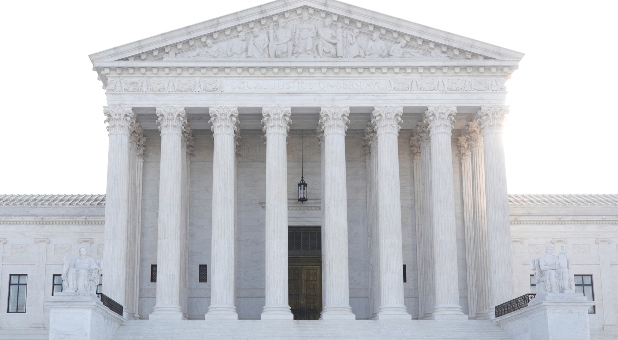Supreme Court to Decide if Pastors Must Abide by Anti-Discrimination Laws
What happens when a faith community’s decisions to designate leadership conflicts with the discrimination laws of the land?
Two cases headed to the Supreme Court on May 11, 2020, which will help answer that question and may make a major impact on the hiring and employment practices of religious institutions in America. The cases, Our Lady of Guadalupe School v. Morrissey-Berru and St. James School v. Biel, will call into question who qualifies as “ministers” at religious institutions.
Ministers Lack Unemployment Protections
Ministers do not have the same civil rights protections that the standard American worker has. A 2012 case, Hosanna-Tabor v. EEOC, was brought before the Supreme Court, and the outcome allowed religious employers to override American anti-discrimination laws for ministers if their religious teachings differed from the broader law of the land.
For example, the USA has laws to prevent discrimination based on gender, but many religious institutions believe that only men can serve as clergy. The court ruled unanimously that religious employers were not held to the same anti-discrimination standards as secular employers. It found that the Constitution’s “Establishment Clause prevents the Government from appointing ministers, and the Free Exercise Clause prevents it from interfering with the freedom of religious groups to select their own.” At the time, this decision was uncontroversial. Check out this video to better understand the concepts behind this “ministerial exemption.”
This 2012 case means that people who work as “ministers” lack legal protections that the rest of the American workforce has. The court’s decision allows churches and other religious institutions to hire ministers in accordance with their interpretations of their faith’s theology.
For example, in many states, it’s illegal to discriminate based on sexual orientation, but if a religious group’s theology doesn’t allow for LGBTQ ministers, the religious employer has legal protection. However, this also means that ministers lack protection if they are facing discrimination for other reasons like their race, age, disability status, pregnancy or any other status protected by anti-discrimination laws.
The ministerial exemption ruling seemed to be a simple solution, but it failed to clearly answer one key question—who qualifies as a minister?
The Cases Heading to the Supreme Court
Biel and Morrissey-Berru are strikingly similar cases. In each case, a female plaintiff worked at a Los Angeles-area Catholic school as a teacher, and each woman was classified as a “lay employee” by their schools. Both women provided some religious instruction to their students, but they had degrees from secular universities, and providing spiritual instruction was a minor part of their roles. For example, Kristen Biel (who worked at St. James School), only taught religion from a school mandated workbook “for approximately 30 minutes a day, four days a week.”
The termination of these women and their allegations of discrimination have risen to the highest court in the land. Biel was diagnosed with breast cancer and has unfortunately passed away. While she was living, she brought the case alleging that she was fired for her cancer diagnosis, which would be a violation of the Americans with Disabilities Act. Agnes Morrissey-Berru (who taught at Our Lady of Guadalupe School) claimed that her teaching contract wasn’t extended because of age discrimination.
In both cases, the schools counter that they are exempt from legal consequences because the women were “ministers.”
Speaking to Bloomberg Law, Beth Hurd, a political science professor at Northwestern University, said, “these cases get us into deep water—theologically, historically and legally—really quickly … All of these questions implicate the Court as a theological authority… This is the paradox at the core of these cases. It will not be resolved easily.”
The Supreme Court must now clarify which employees at religious workplaces are ministers and which are not, a situation riddled with ample grey areas. Religious institutions, some of which may have a theology that women cannot be ordained as ministers, may simultaneously begin labeling their entire workforce (including females) as “ministers” to reduce their legal liabilities. Employees may not realize that when they accept a “minister” title that they are inherently giving up certain legal protections.
Should religious employers be required to disclose this legal loophole during the hiring process? What level of work is “ministry” and what is simply a secular job preformed for a religious employer? Are janitors at Catholic schools, security guards at Christian colleges or church receptionists “ministers” and therefore not deserving of anti-discrimination protection?
For those of us concerned with both religious freedoms and civil rights, this case will be a fascinating one to watch. {eoa}
LightWorkers’ mission is to create engaging, uplifting and inspirational content that breaks through the clutter, building a community of sharing and igniting a movement in the real world that motivates people to celebrate and share the good all around them. Visit lightworkers.com.
















































